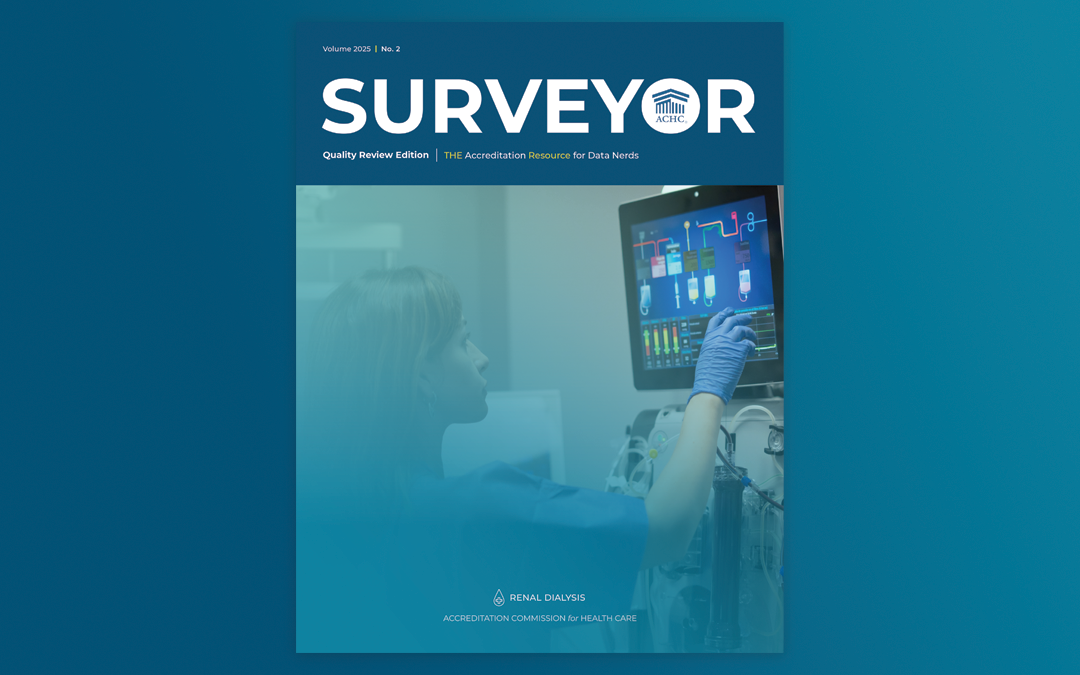Articles
For information related to a specific standard, enter the standard number in the search bar below. If no result is returned, contact your account advisor for guidance.

Hospital Findings Reveal Persistent Compliance Challenges
Each year, the Quality Review edition of Surveyor identifies and analyzes the most challenging standards for ACHC-accredited hospitals. Overall, this year’s…

Renal Dialysis Findings Offer Key Compliance Insights
Survey findings in the new Quality Review edition of Surveyor break down compliance gaps, delivering valuable insights to help your…

Don’t Let Contractors Sink Your Surgery Practice: OBS Vendor Oversight and QAPI Integration, Part 2
When you run an office‐based surgery (OBS) practice, balancing overall management with care delivery details is an ongoing challenge…

Documentation Gaps Dominate Home Health Survey Deficiencies
Top survey deficiencies across home health and other home-based care programs share a common theme: standard findings related to documentation…

Raising the Bar in Home Care Accreditation
Surveyors find gaps in compliance. It’s their job to help you see what may have become obscured in day-to-day activity…

Accreditation Theater: The Illusion of Rigor in Healthcare Accreditation
In the post-9/11 era, the term “Security Theater” emerged to describe over-the-top yet ineffective airport security procedures designed more to make travelers feel safe than to actually increase safety. Today, healthcare accreditation faces its own version…